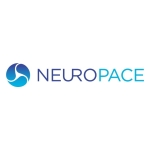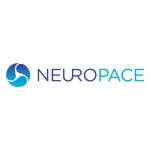NeuroPace Shares Positive Data from Studies of the RNS System at the American Academy of Neurology 2019 Annual Meeting

Results Demonstrate Significant Seizure Reduction in Adults with
Drug-Resistant Epilepsy; Provides Insights Into the Human Brain
MOUNTAIN VIEW, Calif.–(BUSINESS WIRE)–NeuroPace, Inc., a Silicon Valley-based medical technology company,
presented long-term clinical results demonstrating that the RNS®
System for refractory epilepsy significantly reduces seizure frequency
in patients, with one in three people achieving 90% or greater reduction
in seizure frequency at nine years. Data from new research illustrating
potential for the RNS System to identify objective biomarkers in the
brain were also presented. Both developments were shared at the American
Academy of Neurology (AAN) 2019 Annual Meeting in Philadelphia this week.
The company’s groundbreaking Long-Term Treatment Study of the RNS System
is the largest and longest prospective neuromodulation study in the
field of epilepsy, with 256 patients across 33 epilepsy centers
prospectively analyzed for nine years. The study showed that treatment
with the RNS System resulted in significant seizure reduction and
improved quality of life for patients, including improved memory and
cognition.1 Median seizure reduction across all patients in
the study (who had drug-resistant epilepsy and a median of 10 seizures
per month) was 75% at nine years. Results of the study were previously
shared at the American Epilepsy Society Annual Meeting in December
2018.
“These nine-year results demonstrate compelling long-term seizure
reduction in patients treated with the RNS System,” said Dileep Nair,
M.D., a paid consultant to NeuroPace, principal investigator of the
study and section head of adult epilepsy at the Neurological Institute
at Cleveland Clinic. “Through the body of information provided by RNS
System, we are gaining a better understanding of the human brain – both
generally, and on an individual level. It is exciting to consider how
this knowledge might be used to improve the treatment of brain
disorders.”
An additional presentation on new research evaluating the RNS System’s
ability to detect mesiotemporal lobe epilepsy (MTL) patients’ treatment
response was given by Sharanya Arcot Desai, Ph.D., senior research
scientist at NeuroPace. The retrospective analysis used machine and deep
learning algorithms to demonstrate that ECoG data can reliably
differentiate responders from non-responders, signaling the technology’s
potential to uncover additional biomarkers in the brain.
“Electrographic data captured by the RNS System is the single largest
collection of ambulatory brain recordings in the world,” said NeuroPace
Chief Medical Officer Martha Morrell. “It will undoubtedly expand our
understanding of the human brain and epilepsy. With the use of advanced
analytical techniques, the RNS System provides a window into the
location, frequency, and triggers of an individual’s seizures. These
insights have the potential to lead to the treatment of other brain
disorders that affect millions of people worldwide.”
As the only FDA-approved medical device that uses brain-computer
interface technology for epilepsy, the RNS System offers an advanced
treatment option for patients with refractory focal seizures. Neural
data from the RNS System provides information that helps clinicians
better understand an individual’s seizures, allowing them to personalize
care and empowering patients to better manage their condition. Using
artificial intelligence and machine learning, NeuroPace scientists are
analyzing millions of electrocorticographic recordings to develop
algorithms to help optimize and individualize patient care.
About Epilepsy
One in 26 Americans will develop epilepsy in their lifetime, with
approximately 150,000 new cases of epilepsy diagnosed annually. An
estimated 3.4 million Americans currently live with epilepsy. Epilepsy
is a chronic disorder, the hallmark of which is recurrent, unprovoked
seizures. More people live with epilepsy than autism spectrum disorders,
Parkinson’s disease, multiple sclerosis and cerebral palsy – combined.2
About the RNS® System
The RNS System is the world’s first and only closed-loop
brain-responsive neurostimulation system designed to prevent epileptic
seizures at their source. The RNS System is composed of a
neurostimulator, leads that are placed at the seizure foci, a remote
monitor used by patients to upload their data, and a RNS Tablet and
Patient Data Management System (PDMS) used by physicians. Physicians can
view their patient’s electrographic data on a secure website and program
the device to personalize therapy for each individual. Unlike
anti-epileptic drugs or resective surgery, brain-responsive
neuromodulation outcomes typically improve with time and do not cause
the cognitive side effects that can be associated with those
alternatives. The RNS System is now available at nearly all
comprehensive epilepsy centers in the United States and is widely
covered by private and government insurance.
The RNS® System is an adjunctive therapy for adults with
refractory, focal onset seizures with no more than two epileptogenic
foci. See important safety information at www.neuropace.com/safety/.
About NeuroPace
NeuroPace is the global leader in the emerging field of brain-computer
interface technologies, which is projected to become a $1.2 billion
market by 2024. We are dedicated to developing groundbreaking technology
and advancing brain science to improve the quality of life for millions
of individuals who suffer from neurological disorders. The company’s
first product, the RNS System, is the only FDA-approved brain-responsive
neurostimulator for the treatment of focal onset refractory epilepsy. In
addition to treating epilepsy, brain-responsive neuromodulation holds
the promise of treating other brain disorders that impact quality of
life for millions of patients throughout the world.
1 Loring DW et al., Epilepsia, 2015.
2
Epilepsy Foundation. “Facts about Seizures and Epilepsy.”
Contacts
Health+Commerce
Durae Hardy
durae@healthandcommerce.com

